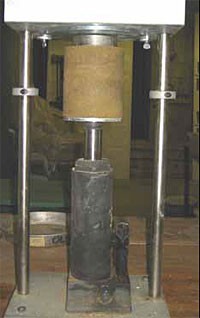Researchers
Vern Schaefer
Joe Gray
Ed Jaselskis
David White
About the research
Current monitoring techniques for determination of compaction of earthwork and asphalt generally involve destructive testing of the materials following placement. Advances in sensor technologies show significant promise for obtaining necessary information through nondestructive and remote techniques. To develop a better understanding of suitable and potential technologies, this study was undertaken to conduct a synthesis review of nondestructive testing technologies and perform preliminary evaluations of selected technologies to better understand their application to testing of geomaterials (soil fill, aggregate base, asphalt, etc.). This research resulted in a synthesis of potential technologies for compaction monitoring with a strong emphasis on moisture sensing. Techniques were reviewed and selectively evaluated for their potential to improve field quality control operations. Activities included an extensive review of commercially available moisture sensors, literature review, and evaluation of selected technologies. The technologies investigated in this study were dielectric, nuclear, near infrared spectroscopy, seismic, electromagnetic induction, and thermal. The primary disadvantage of all the methods is the small sample volume measured. In addition, all the methods possessed some sensitivity to non-moisture factors that affected the accuracy of the results. As the measurement volume increases, local variances are averaged out providing better accuracy. Most dielectric methods with the exception of ground penetrating radar have a very small measurement volume and are highly sensitive to variations in density, porosity, etc.
